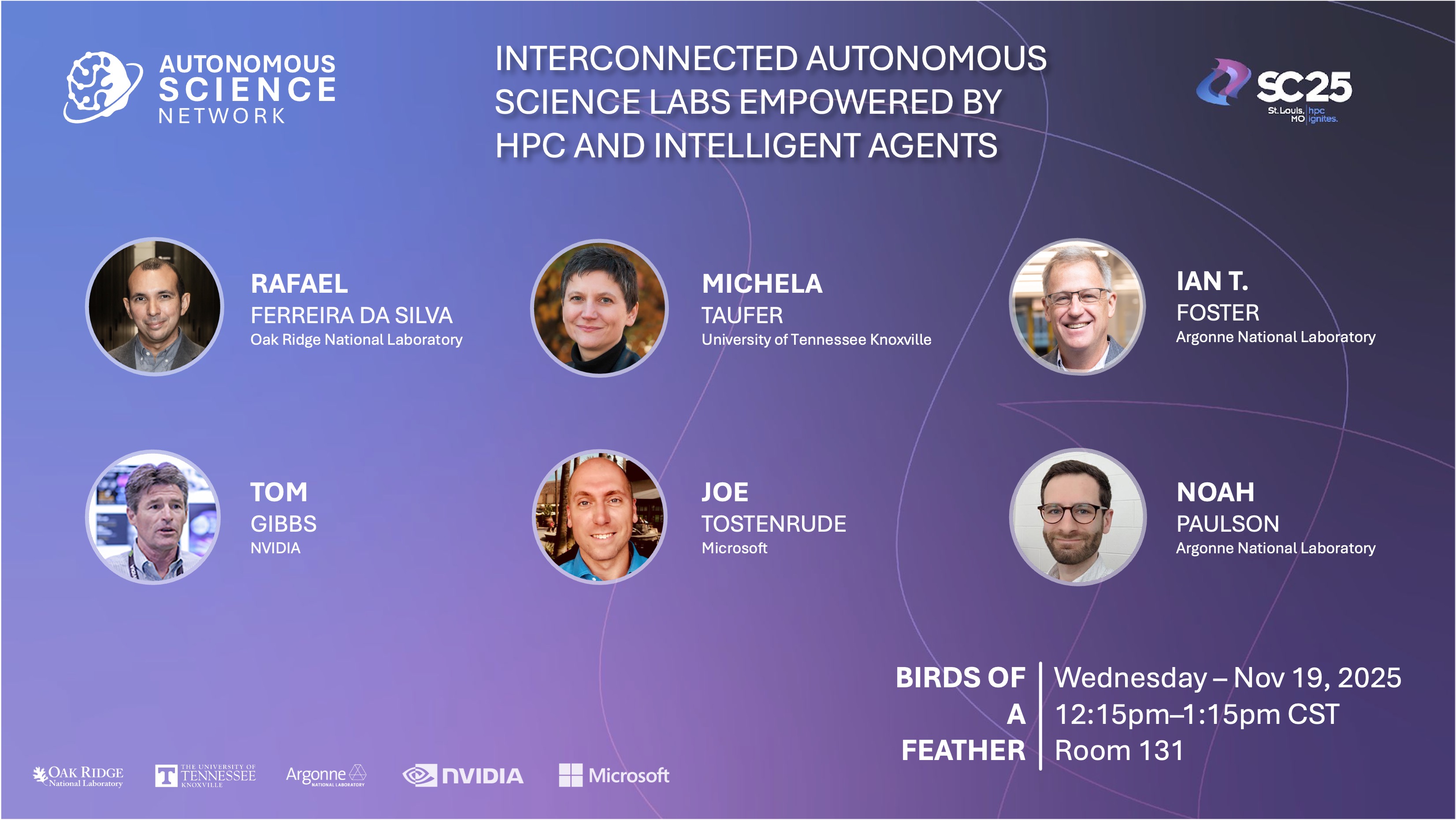Why this BoF matters
Autonomous science is rapidly transforming discovery across materials, energy, climate, and health. Yet most autonomous laboratories still operate in isolation. This BoF convenes researchers, facility operators, and industry partners to connect autonomous capabilities into a cohesive, interoperable ecosystem.
We will explore how HPC can serve as a decision-support platform that enables near real-time coordination of scientific activities, and how intelligent agents can synthesize data from distributed instruments, run predictive models, and adaptively refine experiments.

Discussion themes
- What APIs and standards are still missing for lab interoperability?
- How do we co-schedule agents, instruments, and HPC workflows?
- What trust and verification models enable autonomous decision-making?
Agenda
Rafael Ferreira da Silva, ORNL
Michela Taufer, UTK
Tom Gibbs, NVIDIA
Ian T. Foster, ANL
Joe Tostenrude, Microsoft
Noah Paulson, ANL

St. Louis, MO, USA
Date: November 19, 2025
Time: 12:15pm-1:15pm
Room: Room 131
Supporters



